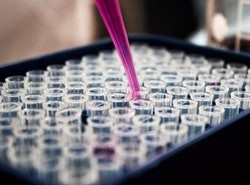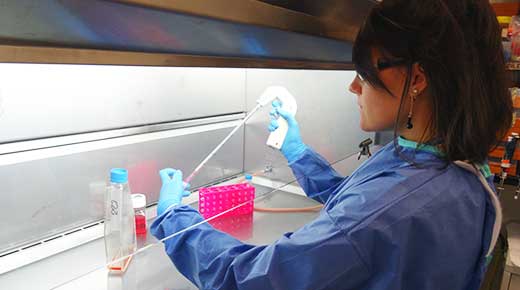
Overcoming treatment resistance in ER+ breast cancer
Published: 10/10/19 12:21 AM

Iza Denis
Three quarters of breast cancers are estrogen receptor positive (ER+), and although current treatments (such as tamoxifen) are extremely effective, more patients die from this type of breast cancer than any other form of the disease. Indeed, for some women with ER+ breast cancer, their tumours develop resistance to therapy and their cancer returns.
NBCF Post-doctoral Fellow Dr Iza Denis believes this is due to an imbalance between two other female hormones that are naturally found in breast cells, called androgen and progesterone, which when combined with estrogen participate in the normal development of the breast.
Identifying the interactions between estrogen, androgen and progesterone could be critical to understanding treatment resistance and how to overcome it, but there is currently little information on the role that they might play.
This project will use advanced genomic profiling techniques to generate information on female hormone interactions in normal and malignant human breast tissues.
This could ultimately lead to the identification of biomarkers that are able to determine the women who will most benefit from treatment, and those that are most at risk of their breast cancer returning.
Knowing how each woman may respond to treatment enables health professionals to tailor a treatment plan that specifically matches the makeup of her particular tumour to the best available therapy with the least side effects – a growing field of medicine called personalized medicine.

